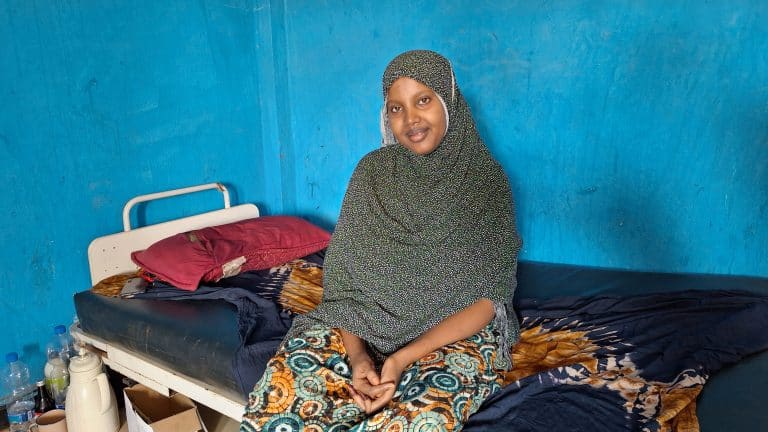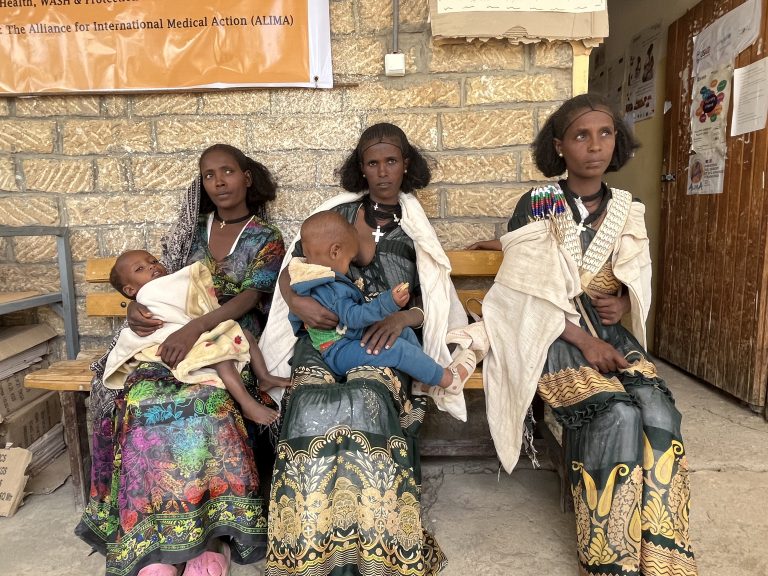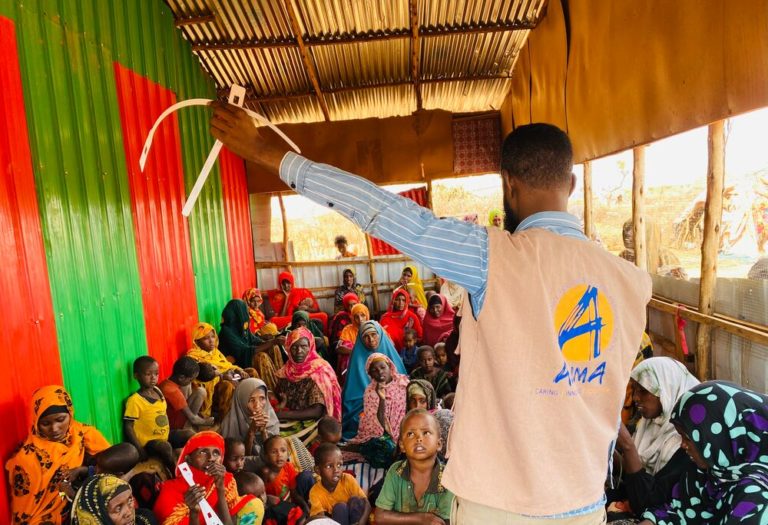Ethiopia: ALIMA’s Actions on the Ground
📍 ALIMA presence since: 2023
🛡️ Mission status: ongoing
🏥 Beneficiaries in 2024: 84,710
🔹 Key areas of expertise: Malnutrition | Women’s health | Mental health
Humanitarian situation in Ethiopia
Ethiopia, the second most populous country in Africa, is experiencing a major humanitarian crisis driven by armed conflict, extreme droughts, and devastating floods.
📌 Key figures of the crisis in Ethiopia
- 🌍 Population: 129.7 million (OCHA, 2024)
- 🚨 People in need of humanitarian aid: NA
- Internally displaced persons and refugees: 4.2 million (UNHCR, 2024)
- 🍽️ People facing severe food insecurity: 5.5 million (WFP, 2024)
In the Somali region, located in the southeast, repeated droughts and floods in November 2023 displaced over 746,000 people, destroying infrastructure, crops, and access to clean water.
To address these challenges, ALIMA is providing medical, nutritional, and psychosocial care to the affected populations.
Medical aid and humanitarian response in Ethiopia
🥣 Nutritional support for children and pregnant women
In the woredas of Hargele, Elkare, and Barey, ALIMA runs nutrition programs to treat malnourished children and strengthen local capacities for early detection through the MUAC for Mothers approach.
Children with severe acute malnutrition receive Ready-to-Use Therapeutic Food (RUTF), while those with complications are cared for in dedicated stabilization centers.
📊 In 2024, ALIMA treated 2,309 children suffering from severe acute malnutrition.
👩⚕️Maternal health and access to care for women
To ensure safe births and quality medical follow-up, ALIMA is providing essential maternal health services: pre- and postnatal consultations, emergency obstetric care, and support for women victims of gender-based violence.
In 2024, ALIMA supported 4,654 pregnant women through medical follow-up.
🧠 Psychosocial support and mental health
Populations affected by displacement, malnutrition, violence, and climate-related trauma are offered psychosocial support through group sessions, individual consultations, and caregiver training.
📊 In 2024, ALIMA conducted 562 psychological support sessions with affected communities.
🚑 Access to healthcare for displaced populations and isolated communities
ALIMA supports nine care facilities, including the Afder Zone Hospital, two health centers, and six health posts. In addition, a mobile team reaches remote areas to care for nomadic communities and internally displaced populations, ensuring that the most vulnerable have access to healthcare.
📊 In 2024, ALIMA carried out 25,454 medical consultations in health centers and via its mobile teams.
Highlight project: emergency medical and nutritional assistance for vulnerable populations
🎯 A vital project for displaced people and affected communities
In the Somali region, ALIMA is implementing a key project to reduce mortality and improve access to medical and nutritional care.
📌 Why this project matters
- Widespread malnutrition and lack of adequate medical care.
- Large-scale displacement populations fleeing conflicts and climate shocks.
📌 Project goals
- Treat malnourished children under five and support pregnant women.
- Deploy mobile health teams to reach isolated populations.
- Support for local health structures to strengthen medical capacity.
- Integrate mental health and psychosocial services to healthcare practices.
This initiative is not only saving lives, it is also reinforcing the long-term strengthening of the local health system.
On the ground
Our News from Ethiopia

Ethiopia: Turning the miracle of healthcare access into reality
In a sandy area of southern Ethiopia, affected by malnutrition, climate shocks, water scarcity, and lack of healthcare, new life continues to emerge in the

By Women, For Women: Providing Care in Tigray
In Tigray’s mountains, displaced women regain access to vital health care through ALIMA-supported clinics. Prenatal consultations, safe deliveries, and psychosocial support: women caregivers standing with

Faced with the climate crisis in Ethiopia: ALIMA is saving lives and training local healthcare workers
Due to the impacts of the climate crisis, 3.5 million people have been displaced in Ethiopia. One year ago, ALIMA teams arrived at Hargele town,


